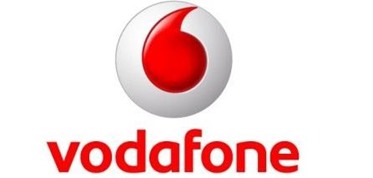Indian Govt Accuses Vodafone for Sharing Data with British Spy Agency
Home Ministry of India has directly accused Vodafone of sharing sensitive subscriber’s data with British security and intelligence agency, a charge denied by the company.
In an office memorandum of the internal security division of the Union Home Ministry, it was revealed that “GCHQ’s mass tapping operations has been built up over the past five years by attaching intercept probes to the transatlantic cables where they land on British shores. Intercept partners are paid for logistical assistance “.
It added that GCHQ was provided “secret unlimited access to their network of under sea cables, which carry much of world’s phone calls and Internet traffic”

Along with Vodafone, Home Ministry has also accused US based Verizon of sharing data with UK government. As per the note, Vodafone and Verizon “are learnt to be secretly collaborating with UK’s GCHQ and passing on details of their customer phone calls, email messages and other communication and are intercept partners”.
The Government Communications Headquarters (GCHQ) is a British intelligence agency responsible for providing signals intelligence (SIGINT) and information assurance to the British government and armed forces. It operates under the formal direction of the Joint Intelligence Committee (JIC) alongside the Security Service (MI5), the Secret Intelligence Service (MI6) and Defence Intelligence (DI). GCHQ is the responsibility of the UK Secretary of State for Foreign and Commonwealth Affairs, but it is not a part of the Foreign Office and its Director ranks as a Permanent Secretary. (source: Wikipedia)
Based on these inputs, Home Ministry had asked Department of Economic Affairs to stop issuing clearance to Vodafone for increasing their stake in India, as they are also involved in tax evasion case to the tune of Rs 11,200 crore. But the Foreign Investment Promotion Board (FIPB) went ahead and gave clearance for increasing the foreign equity in Vodafone India Limited.
However, Vodafone has denied the charges and commented, “no such concern has been raised with us by the Indian government. The Government of India’s approval of our FDI application states that it was cleared by the FIPB and CCEA after all necessary due diligence.
In its reaction to , GCHQ said: “It is a long-standing policy that we do not comment on intelligence matters.”
Last year, Chinese telecom companies were accused of data theft from BSNL’s network in India, a charge denied by the concerned companies. It seems that spy agencies all over the world are targeting data related with Indian consumers and users, and there is nothing our government can do about it. Maybe globalization has its own side effects.
Do share your views on this news by commenting right here!

Whether the acusation is true as claimed by Govt or false as denied by Vodafone, it is one risk the nation has to live with while dealing with foreign companies. In any field national secrets will go out if dealing with foreign companies.
Take for example defence equipment purchases : The same company selling weapons/ammunition to India may be selling to other nations. Suppose they sold weapon A to India. Then they go to the otehr country and tell them, look India has weapon A, now we have a higher model weaponB, and if you want we can sell it to you. They can play both sides or tell their own govts what capacity each nation has.
Similarly our power producers are buying Chinese power equipment as that is cheaper than our BHEL or L&T. In international business, those Chinese companies know what is BHEL or L&T capability/prices and they can price their sales to their advantage. Where BHEL or L&T can not supply some modern equipment, chinese can price high and where our companies can supply, chinese can cut price.
The possibility is endless in this angle.
Just my two paisa :)